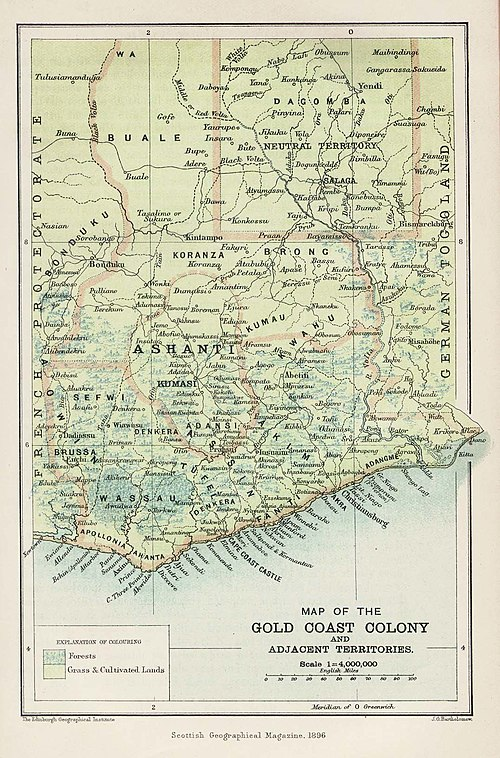IB Syllabus focus:
'Examine the factors that influenced decisions to collaborate with colonial powers, including pragmatism, willingness of the colonial power to negotiate, social, political, and economic gains, and the lack of alternative options.'
The period of European imperialism was marked by a complex matrix of responses from the indigenous states and communities. Among these was the decision to collaborate, which was not merely a sign of acquiescence but often a strategic choice influenced by various sociopolitical, economic, and pragmatic factors. This multifaceted decision-making process can be better understood through a detailed exploration of these influences.
Pragmatism in the Face of Imperialism
Pragmatism played a significant role in the decision to collaborate. Leaders had to weigh the reality of the situation against the potential for catastrophic loss should they choose to resist.
Realpolitik: Leaders often engaged in realpolitik, making decisions based on practical rather than moral or ideological considerations. They recognised the formidable military technology of the Europeans and the improbability of successful resistance.
Avoidance of Direct Confrontation: Many leaders sought to avoid the devastation of war and the potential for complete annihilation, opting for collaboration as a less destructive path.
Willingness to Negotiate by Colonial Powers
Not all colonial powers were rigid in their approach. Some exhibited a willingness to negotiate, influencing the decisions of local leaders to collaborate.
Bargaining for Autonomy: In regions where colonial powers showed flexibility, local leaders used collaboration as a means to secure greater autonomy and control over internal affairs.
Signing of Treaties: The signing of treaties often resulted in a form of indirect rule, where local leaders retained their positions as long as they pledged allegiance to the colonial power.
Social Gains through Collaboration
Collaboration could lead to certain social advantages, which were attractive to some indigenous societies.
Elite Consolidation: The pre-existing elite often managed to consolidate their power by aligning with the colonial powers, sometimes translating into improved social status.
Adoption of Western Education and Religion: The introduction of Western education and Christianity provided new opportunities for social mobility and were seen as markers of ‘civilisation’ and progress.
Political Gains through Collaboration
Political incentives were also a driving force behind the decision to collaborate.
Retention of Political Structure: By collaborating, some local governance structures could be retained under the new colonial administration.
Intermediary Role: Indigenous leaders often became intermediaries or ‘puppets’, which allowed them to maintain a semblance of power and influence.
Economic Gains through Collaboration
The lure of economic benefits was a powerful motivator for collaboration.
Trade Opportunities: Collaboration opened new trade opportunities with the global market that colonial powers controlled.
Infrastructural Development: The promise of infrastructural development, such as railways and ports, was enticing for local leaders looking to modernise their economies.

The Uganda Railway embodied the infrastructural incentives colonial powers offered—linking interior polities to coastal markets and imperial authority. For many African leaders, such projects promised trade access and state-building in exchange for cooperation. Source
Lack of Alternative Options
In many cases, the absence of viable alternatives led to collaboration.
Isolation: Some states found themselves geographically or politically isolated and thus more vulnerable to colonial incursions, leaving collaboration as the only feasible option.
Divide and Rule: The colonial strategy of ‘divide and rule’ often weakened the possibility of a unified resistance, leaving communities with little choice but to collaborate.
Case Studies of Collaboration
Collaboration for Modernisation
Japan’s Approach: The Meiji Restoration is a prime example where Japan, though not directly collaborating with a colonial power, underwent rapid modernisation to avoid colonial subjugation.
Strategic Collaboration
Kingdom of Buganda: Buganda's collaboration with the British was a strategic move that allowed it to maintain a degree of sovereignty while gaining military and economic advantages.
Collaboration to Maintain Autonomy
Fante Confederacy: The Fante Confederacy’s collaboration with the British was a strategic move to preserve autonomy and counterbalance the threat of the Asante Empire.

This 1896 map situates the British Gold Coast, with coastal forts and settlements facing the Asante interior—illustrating why some coastal polities aligned with Britain against Asante power. It provides the spatial context for Fante collaboration as a security strategy. (Includes additional regional detail beyond syllabus scope.) Source
Critiques of Collaboration
Collaboration was not without its critics and consequences, which have left lasting impacts on the societies involved.
Moral and Ethical Backlash: Nationalist movements later criticised collaborators for betraying their people and cultures.
Dependency and Cultural Loss: Over time, collaboration often led to economic dependency on European powers and erosion of indigenous cultures and traditions.
Complexity of Collaboration
The decision to collaborate was complex and multifaceted, reflecting the intricate realities of imperial dominance and indigenous agency.
Interplay of Factors: The decision to collaborate typically involved an interplay of multiple factors, including not only immediate survival but also long-term considerations of prosperity and power dynamics.
Changing Dynamics: The relationships between collaborators and colonial powers were not static and could change, sometimes leading to eventual resistance or renegotiation of terms.
In examining the diverse and often sophisticated reasons behind the collaboration with European powers during imperialism, it is essential to understand that these were not merely passive decisions but strategic choices made by indigenous leaders. These decisions were influenced by a combination of foresight, desperation, ambition, and sometimes a keen sense of realpolitik. By delving into these factors, IB History students can appreciate the depth of the historical narrative and the intricate decisions that shaped the colonial and postcolonial worlds.
FAQ
The threat of military force played a significant role in the decision to collaborate with colonial powers. Indigenous leaders were acutely aware of the military superiority of European nations, particularly with advances in technology like the Maxim gun. The destructive potential of these weapons and the demonstrated willingness of colonial powers to use them led to a pragmatic assessment of the risks of resistance. For many, the decision to collaborate was a survival strategy, aimed at averting direct military confrontation which could lead to the decimation of populations and the loss of sovereignty.
Collaboration with colonial powers can, in some contexts, be interpreted as a subtle form of resistance. When indigenous leaders chose to collaborate, they often did so to maintain some level of autonomy and to protect their interests and people from the worst excesses of colonial exploitation. By collaborating, they could manoeuvre within the colonial system, using their positions to subtly undermine colonial authority and protect certain cultural or social practices. This was a strategic choice, balancing the exercise of agency and the preservation of the community against the overwhelming force of imperialism.
Cultural perceptions of European powers were significant in influencing the decisions of indigenous societies to either collaborate or resist. If European powers were perceived as culturally superior, civilised, or as bearers of modernity, local elites might collaborate to benefit from this association and to reform their own societies along perceived modern lines. Conversely, where Europeans were seen as desecrators of traditional values or as threatening to the local way of life, resistance was more likely. These perceptions were shaped by a myriad of factors including prior contact with Europeans, religious beliefs, and the influence of European education.
In many instances, the economic benefits of collaborating with colonial powers predominantly favoured local elites and those in positions of power. These leaders secured profitable alliances and trade agreements that often reinforced their status and wealth. However, the trickle-down effect to the general population was minimal, with benefits such as infrastructural improvements like roads and railways serving broader colonial interests rather than local needs. The extraction of resources and export-oriented economies established under colonial rule generally disadvantaged the wider population, exacerbating inequalities and laying foundations for future economic disparities.
The nature of the colonial power was crucial in shaping indigenous decisions to collaborate. If a colonial regime demonstrated flexibility and a degree of respect towards indigenous cultures, it was more likely to secure collaboration from local leaders. For instance, the British policy of indirect rule allowed for the retention of traditional hierarchies and customs, which could make collaboration more appealing to local rulers. Conversely, more repressive colonial administrations, such as those that sought to replace indigenous institutions with European systems, were met with more resistance. Thus, the decision to collaborate often hinged on how much autonomy and cultural preservation the colonial power was willing to allow.
Practice Questions
Economic factors were often the immediate incentive for collaboration, as they promised infrastructural development and access to international trade, vital for the modernisation of many societies. However, the significance of political factors should not be underestimated; the retention of power, preservation of local governance, and the ability to maintain societal hierarchies provided long-term stability and autonomy within the colonial framework. While both aspects were crucial, political factors arguably had a more profound and enduring impact on the structure and future of indigenous societies, shaping the nature of colonial rule and the legacy of imperialism.
The statement holds substantial truth as pragmatism undeniably influenced the decision to collaborate, with indigenous leaders weighing the survival and welfare of their people against the likely futility of resistance. Nevertheless, to say the decision was always pragmatic oversimplifies the complex motivations at play. Factors such as economic gains, social advancement, political strategy, and even coercion also played significant roles. Furthermore, the varied nature of colonial powers' willingness to negotiate could alter the balance between pragmatism and other motivations. Thus, while pragmatism was a significant factor, it was not the sole rationale behind collaboration.

